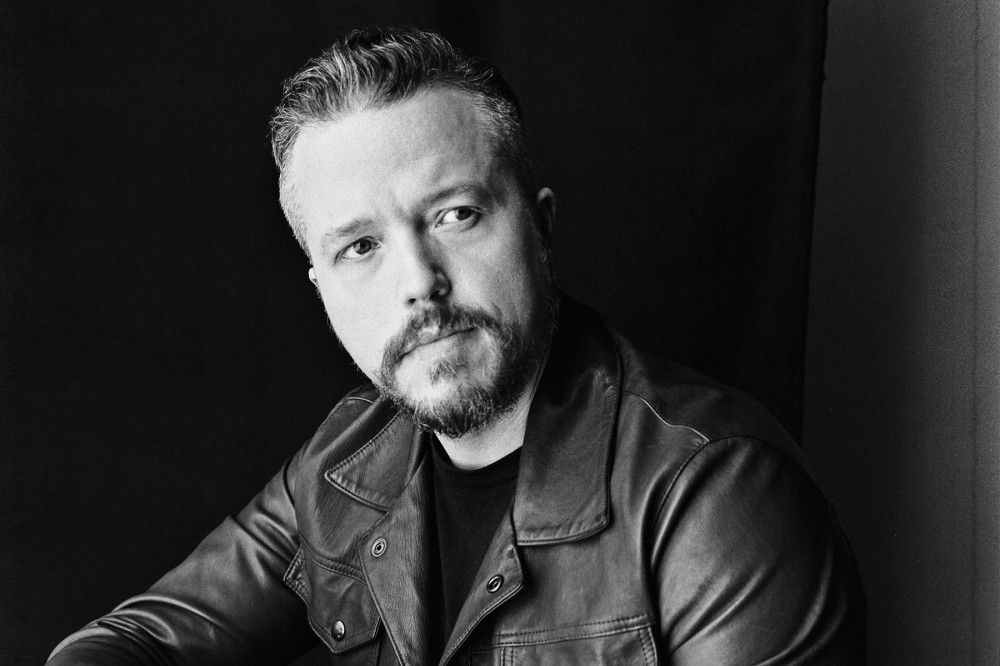
Jason Isbell on His New LP, 'A Star Is Born,' and Hanging With Springsteen and Crosby
“It’s all based on a true story,” says , “and it’s all fiction.” The roots-drenched singer-songwriter’s excellent new album, Reunions, is filled with tales of lost friends and other melancholy memories, but don’t let his gift for novelistic detail fool you: The people he’s mourning didn’t necessarily exist, just as it turns out that the meth-fueled college misadventures he detailed in 2017’s “Last of My Kind” never actually happened. The onetime Drive-By Trucker’s imaginative gifts served him well in 2018, when he wrote the utterly convincing “Maybe It’s Time” for ’s character in . “I’m sure that’s the biggest project I’ll ever be part of,” says Isbell.
On “It Gets Easier,” you write about the challenges of staying sober after many years — a unique angle on the subject. How did you come to write it?
I’m always looking for ways to come at subject matter that haven’t been explored before. People will write a lot about the first stages of love or recovery or life-changing events. You write about the funeral; you don’t write about 30 years later, when Dad’s been gone.
I’ve been sober for eight years, and the fact of it is, you still wish that you had that crutch sometimes.… I do still have those “slip dreams,” as calls them, where I’ll dream that I just had a drink. And I’m like, “What the hell did I just do?”
Crosby is a fan of yours, and he sang backup on this album. What’s your relationship like?
David is like your granddad, if your granddad was really stoned all the time. He’ll call at one o’clock in the morning and he’s really high and he wants to tell you about an idea, and they’re usually good ideas. His voice is still so powerful, and that surprised me because he’s not always taken the best care of himself. I asked him, “How are you still able to sing like that?” He said, “I tried everything I could to kill it, but it just won’t die.”
The other new song that seems drawn from your life is “Letting You Go,” where you imagine your four-year-old daughter getting married, many years from now.
That is a terrifying thing for a father to imagine. When my father-in-law was walking my wife singer-songwriter Amanda Shires] down the aisle, when he got up to me, he stopped and would not hand her over laughs]. And now I think, “Man, I’d probably do the same thing.” I have this theory about raising a daughter. If she does wind up with a man, and if I’ve misbehaved, she’s gonna think, “This is not so bad,” and tolerate more from guys. So if I don’t want to deal with an asshole showing up in the driveway to pick her up to go to prom, then I can’t be an asshole myself.
“Letting You Go” is one of your many, many tear-jerking songs, from the cancer tale “Elephant” to “If We Were Vampires,” where a married couple grapples with the idea that one of them will inevitably die first. Do you, on some level, enjoy making listeners cry?
Well, that or making them laugh — if you make somebody make some type of noise unintentionally, you’re doing a pretty good job as a songwriter. But there’s something about the sad songs where it’s not just sad, there’s a resilience, and I think that’s what really affects people. When you’re painting a picture of people who insist on pushing through and surviving, that’s where people really get moved, because that is at the heart of the human experience.
When you met a few years ago, he sang one of your songs to you, right?
He goes, “My son brought your record home, and I really liked that song — and then he started singing — “Traveling Alone.” And I’m standing there thinking, “He’s singing my song in Bruce Springsteen voice!” And then I was like, “Yeah, ’cause that’s just what comes out of his face naturally, you know?” But he was supersweet. And I was beside myself. I mean, it’s Bruce Springsteen. He really lived up to all the hype. And he comes from a time when it was possible for people to write those kind of songs and sell millions of records and sell out arenas.
Do you yearn for that era at all?
If I’d come along in the Seventies, I probably would have been a much bigger star, and I would’ve had a lot more money. And I would be dead. It would not have turned out well. I mean, more is not always better.
You almost turned down the offer to write for A Star Is Born. Why?
Before I read the script or anything, I thought it sounded like a terrible idea — the one with Barbra Streisand and Kris Kristofferson, as much as I love both of them, was not a great movie. And I had been writing a lot, and I just didn’t feel up to it.
And of course my wife, Amanda, was like, “You’re an idiot! You’ve got all these songs laying around, just finish one up.” That’s what I did, and it turned out great. Bradley came to some shows, and we hung out a bit. He’s a good guy and a good director. Then Gaga called me while I was feeding my daughter one afternoon. For some reason, I thought it would be hilarious to put them on the phone with each other. So I handed my two-year-old the phone — and of course she could say “Gaga” really well.
To hear our entire podcast episode with Isbell, press play above or download and subscribe on iTunes or Spotify.



